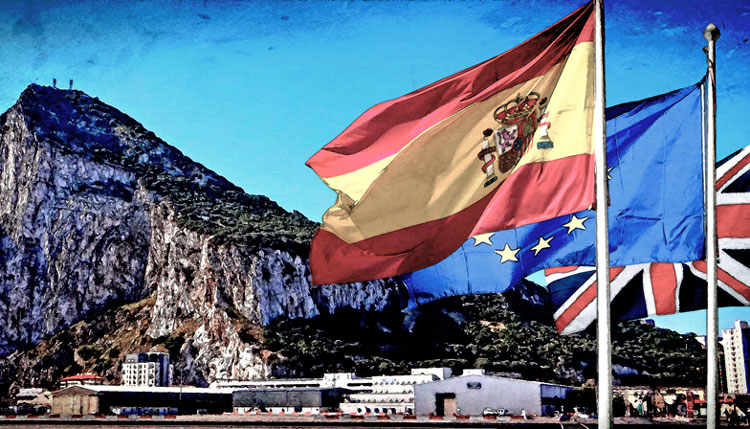Luis Ayllón
The Spanish government is waiting for the European Commission and the United Kingdom to unblock the negotiations they are holding on the future of Gibraltar, after they failed to reach an agreement before Easter, as they had proposed.
London and Brussels have already held several rounds of negotiations to try to reach a text that establishes the relationship between the Rock and the European Union after Brexit, but the progress they have made has been on minor issues and the negotiators appear to have reached an impasse on a significant number of issues, according to sources familiar with the negotiations.
The European delegation negotiating with the British is in permanent contact with the Spanish authorities, who remain vigilant to ensure that the negotiating guidelines approved by the European Council in October last year are complied with, and that any decision taken respects the agreement signed between Spain and the United Kingdom at the end of December 2020 to remove the fence separating La Línea de la Concepción from the Rock.
The negotiators have been setting themselves deadlines to conclude the talks, first by the end of 2021, which could not be met, and then before Easter. This second deadline has not been met either, and at the beginning of this month, during a visit to Algeciras, the Vice-President of the European Commission and responsible for the Promotion of our European Way of Life, Margaritis Schinas, said that the talks would continue, but he was against setting deadlines, because, in his opinion, they do not help the negotiation. “Negotiations are continuing and I can assure you that the European Commission is fully aware of the importance of this agreement for Spain, Andalusia and Europe,” he said.
Issues such as border control, the granting of visas, tax equalisation, the application of European legislation in the Rock, the jurisdiction of the Court of Justice of the EU (CJEU) and issues related to the naval base appear to be at a standstill.
The most well-known disagreement is over who controls entry into Spanish and, consequently, EU territory through the airport and port of Gibraltar. Spain, backed by the EU’s negotiating mandate, wants the control to be carried out by its security forces, although it accepts the collaboration of Frontex agents, the European border agency, but there is still no agreement on this point. The British do not accept the presence of Spanish agents in Gibraltar, and are also opposed to Spain, as the Schengen border, managing visas and residence permits and examining asylum applications in cooperation with the UK.
The removal of physical barriers means that Brussels considers it necessary for there to be a customs union, so that EU provisions would also apply to Gibraltar, including value added tax (VAT) and excise duties on certain products, such as tobacco. Thus, it demands that Gibraltar apply a system to goods that is aligned with the Spanish system, in order to reduce the differential that exists on products such as tobacco, alcohol and fuel.
The British government does not accept these EU demands, nor does it accept that the Court of Justice of the European Union should have any jurisdiction over Gibraltar.
In addition, London is looking closely at any decision that affects military matters and, specifically, the naval base, which, with the UK’s exit from the Union, becomes a military base of a third state in Schengen territory. This issue, however, is not included in the Council’s negotiating mandate and should be the subject of a bilateral agreement between Madrid and London.
Negotiations will continue, but it cannot be ruled out that an agreement will not be reached and, in fact, the government of the Rock has been warning the citizens of the British colony for weeks now that they should be prepared for this eventuality.
Nevertheless, last week, the chief minister, Fabian Picardo, once again assured that, although an agreement has not yet been reached, “negotiations for a treaty between the UK and the EU are progressing positively”. He added that “all sides are firmly optimistic about the possibility of a deal that is acceptable and favourable to all”.
On the other side of the Fence, the Mayor of La Linea, Juan Franco, told Gibraltar News yesterday that he hoped that an agreement would be reached, on which the situation of many of the inhabitants of the Gibraltar region depends. Referring to the lack of agreement at Easter, Franco said: “The fact that the deadlines are being extended, although it sounds incongruous, seems to me to be good news because there is still a will on both sides to reach an agreement. It would be worse if the negotiations were closed without such an agreement. I hope that the positions are close.






